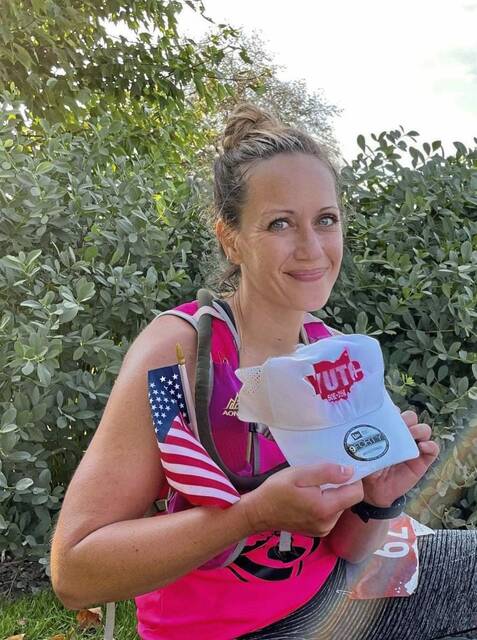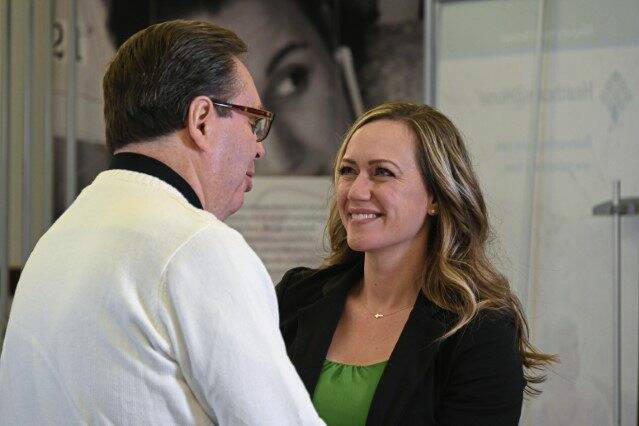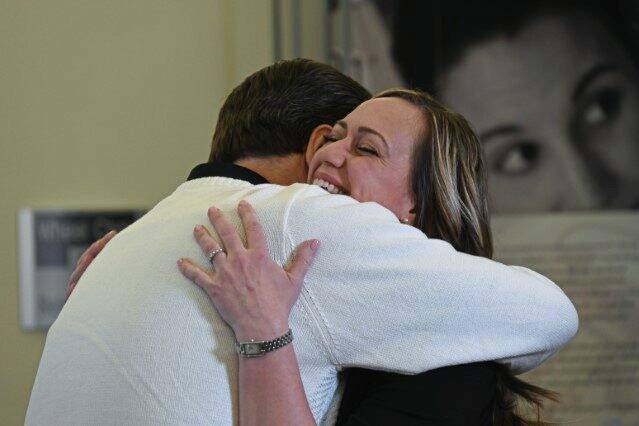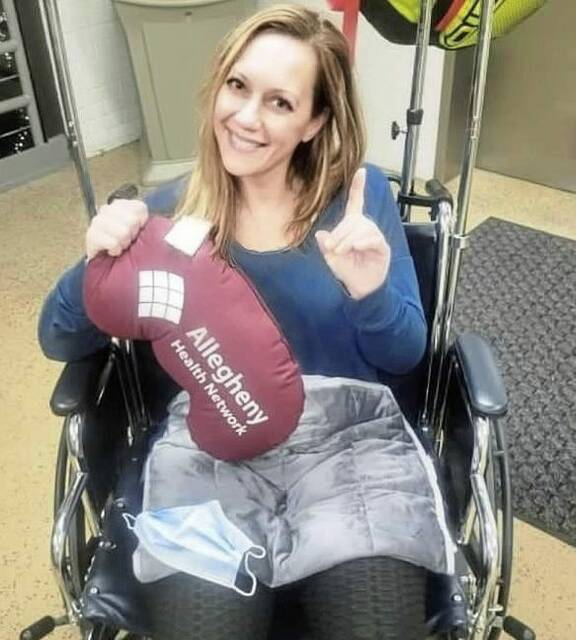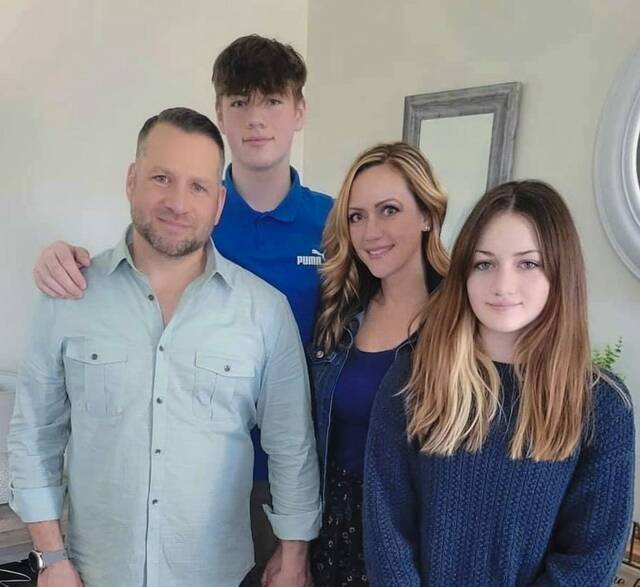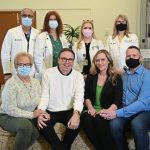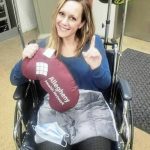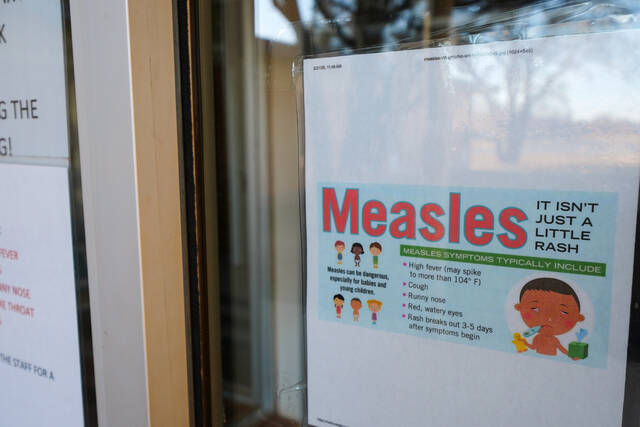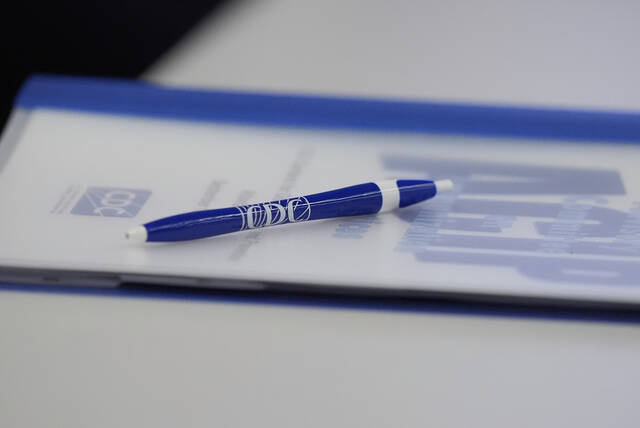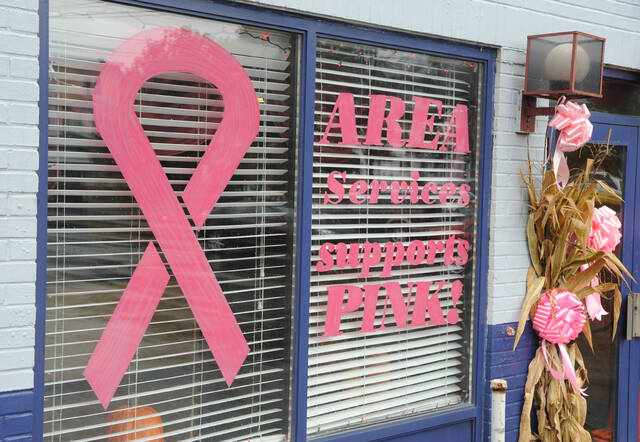Erin Prindle is a trail runner.
The Bethel Park mom laces up her Saucony shoes and ventures out.
She often takes new paths.
“I love running in the woods and being in nature; it’s cathartic,” she said. “Navigating a new trail is like life in the way that sometimes you need to just put one foot in front of the other and keep moving forward. That is my plan for learning how to live my new life with one kidney.”
Prindle, 43, donated her right kidney to someone she didn’t know on Dec. 17 at Allegheny Health Network’s Allegheny General Hospital on Pittsburgh’s North Side.
She met the recipient — Kurt DeHaven of Economy Borough, Beaver County — on Jan. 28 at Allegheny General Hospital.
“Erin gave me the greatest Christmas gift I ever could have received,” said DeHaven, who turned 59 on Feb. 6. “Saying thank you doesn’t seem like nearly enough. When I met her, I won’t deny it, I cried.”
She was emotional, too.
“It was an amazing, beautiful moment,” Prindle said. “I don’t have the words to describe it.”
Seeing that moment was special, said Dr. Rachel Tindall, an abdominal transplant surgeon, who performed Prindle’s surgery alongside Dr. Lorenzo Machado and Dr. Jennifer Carpenter from the Allegheny Health Network’s transplant team.
According to the Organ Procurement and Transplantation Network, approximately 90,000 people are waiting for a kidney in the U.S.
“People are inspired in different ways,” Tindall said. “Erin was motivated to do something for someone else. She saw the value in giving of herself.”
Prindle decided to be a living donor a year ago when a co-worker asked for prayers for his wife, who had a kidney transplant that her body was rejecting.
“She wasn’t doing well, and I asked him if they would need to find another donor,” Prindle said. “When he said ‘yes,’ I asked him to send me the paperwork to get started.”
She began the testing to see if she was a match at The Ohio State University Wexner Medical Center, in Columbus, Ohio, which is where her co-worker and his wife live.
She also had some tests done in Pittsburgh.
Prindle initially was a match, but then her co-worker’s wife had developed some antibodies against Prindle’s blood.
“It was so upsetting,” Prindle said. “I knew if she needed a kidney, there were more people like her out there. I decided I still wanted to do this for somebody.”
Living donors
Prindle got on the kidney paired exchange program, which involves two living donors and two recipients, according to the National Kidney Foundation.
If the recipient from one pair is compatible with the donor from the other pair, and vice versa — the transplant center may arrange for a “swap”— for two simultaneous transplants to take place. This allows two transplant candidates to receive organs and two donors to give organs even though the original recipient/donor pairs were unable to do so with each other.
The individual Prindle was set to give to ended up being able to have a deceased donor transplant.
She still wanted to donate, so she turned to altruistic donation, which means to donate to someone she doesn’t know.
She explored the National Kidney Registry and contacted Allegheny Health Network.
She met with Tindall and the team.
Tindall said she tells donors there is no medical benefit to them, but there is a psychological one — helping someone else.
Living donation is performed laparoscopically, which helps to reduce the amount of recovery time for the donor. With any surgery, there could be risks, although the majority of donors report a full recovery within a few weeks of donation surgery, according to Allegheny Health Network.
Not every donor and recipient meets in person. Some exchange letters or calls. Some have no future contact. The decision is made by them.
When talking with a donor, Tindall said she tells them she will do what is safest for them. She will leave the stronger-functioning kidney. The surgery can be scheduled at a time that is convenient for the donor.
“If someone has an interest in donating, give us a call,” Tindall said. “We can talk to you about it. Donating a kidney is an amazing thing, and you can help someone else’s quality of life.”
When Prindle was brought up to her room after the operation, she asked if the recipient was OK and if the kidney was working. Then she asked if she could walk around the floor, which the staff said was unusual.
“It felt good to walk around,” said Prindle, who was in the hospital overnight and off work for three weeks from her job as a recruiter for Compass Group USA. Her lost wages were covered by the National Kidney Foundation and her medical costs by DeHaven’s insurance.
Prindle said the staff at Allegheny General is caring and professional.
“I know a lot of people don’t know you can do this,” Prindle said. “Awareness is so important. This is a way God wanted to use me. I believe if there is a way to help and I can I should do it. It’s like if I am on a dock and I have two life preservers and someone is in the water and needs one, I should give one to them. I don’t need two.”
DeHaven was diagnosed with IgA Nephropathy because his kidneys weren’t filtering properly. He had been on peritoneal dialysis since Oct. 11.
According to the National Kidney Foundation, a soft plastic tube called a catheter is placed in a person’s belly through surgery. A sterile cleansing fluid is put into a person’s belly through this catheter daily. After the filtering process is finished, which can take hours, the fluid leaves the body through the catheter.
“Having to do dialysis every day put a damper on any kind of social life,” said DeHaven, a nurse practitioner at Allegheny General Hospital.
Family support
Prindle’s husband, Jason, posted on Facebook the day of her surgery. Prindle said her daughter’s friend said Prindle is brave and her son wears a donate-life armband.
“My children and my husband have been so supportive,” she said. “My husband has been a caring caregiver and partner. I could not have donated without his support.”
DeHaven said he and his wife Carol also thanked Prindle’s husband. DeHaven’s wife wasn’t able to donate because she had kidney cancer and one of her kidneys removed.
“When you find out you need a transplant, that is a very difficult situation because you know either someone has to die for you to get a kidney or a healthy person has to give up one of their kidneys,” said DeHaven, whose first concern after waking from surgery was Prindle. “There are risks with an operation.”
Both patients are continuing to recover.
Prindle said she is starting to feel more like herself.
Doctors said she can begin running again.
Prindle, who ran her first 50k this past September, is planning to run another in late summer or early fall. She completed her first half-marathon in 2011, her first Olympic distance triathlon in 2016 and Ironman 70.3 in 2017, which is a 1.2-mile swim, 56-mile bike ride and 13.1-mile run, and her first full marathon in 2019.
“I will start out slow and definitely stay hydrated,” said Prindle, who joined the Facebook group Kidney Donor Athletes started by donor Tracey Hulick of Colorado. “I am ready to get back on the course and see where it leads me. The significance of what I did is not lost on me. It goes back to the life jacket. I had two and gave him one. What I have gone through is nothing compared to what Kurt has gone through. Sometimes you have to think of yourself in other people’s shoes.”
And then continue to put one foot in front of the other.



